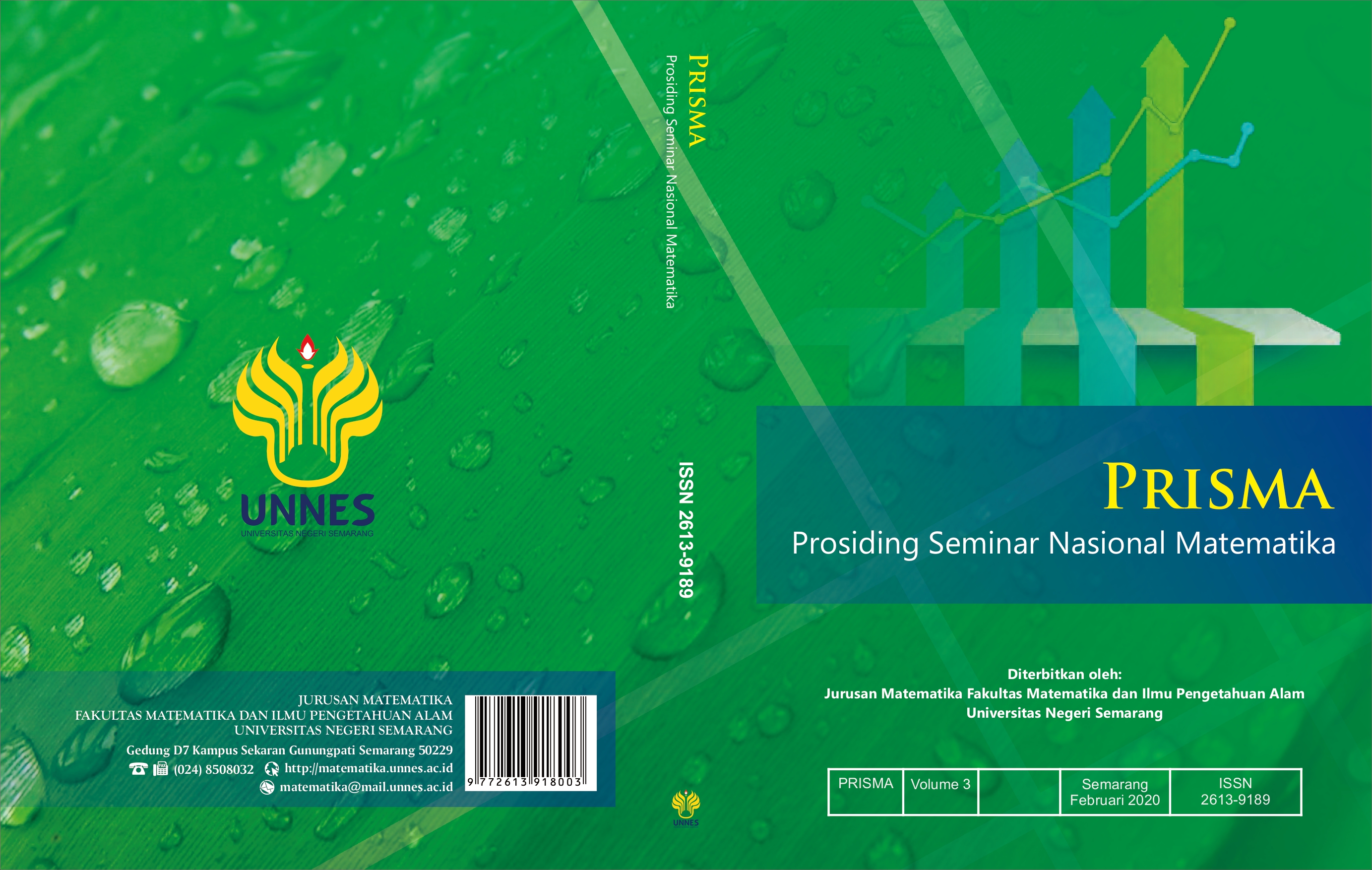Metode Robust Principle Component Analysis (RPCA) dengan Algoritme Proyeksi dan Matriks Ragam Peragam
Main Article Content
Abstract
Metode principle component analysis (PCA) merupakan analisis multivariate yang mentransformasi variabel-variabel asal yang saling berkorelasi menjadi variabel-variabel baru yang tidak saling berkorelasi dengan mereduksi sejumlah variabel tersebut sehingga mempunyai dimensi yang lebih kecil namun dapat menerangkan sebagian besar keragaman variabel aslinya. Selainnya PCA dapat mengatasi multikolinearitas dengan vektor eigen. Namun metode tersebut sangat sensitif terhadap pencilan sehingga akan menghasilkan penduga parameter berbias. Kelemahan pada metode PCA dapat diatasi dengan metode yang merupakan kombinasi dari konsep projection pursuit dengan penduga kovarian minimum covariance determinant yaitu RPCA. Kehadiran pencilan mampu diatasi oleh RPCA karena vektor ciri pada komponen utama tidak terpengaruh oleh adanya pencilan. Akar ciri komponen utama pertama tidak bertambah seiring dengan penambahan proporsi pencilan sehingga proporsi keragaman kumulatif data yang mampu direpresentasikan oleh komponen utama pertama cenderung stabil. Pada penelitian ini dilakukan kajian tentang metode RPCA yang robust terhadap pencilan dengan algoritme proyeksi dan matriks ragam peragam.
Article Details
References
Croux, C., & Haesbroeck, G. (1999). Influence function and efficiency of the minimum covariance determinant scatter matrix estimator. Journal of Multivariate Analysis, 71(2), 161-190.
Croux, C., Ruiz-Gazen, A. (2005). High Breakdown Estimators for Principal Components: the Projection-Pursuit Approach Revisited, Journal of Multivariate Analysis. Leuven, Belgium: Department of Applied Economics.
Croux, C., Filzmoser, P., & Oliveira, M. R. (2007). Algorithms for projection–pursuit robust principal component analysis. Chemometrics and Intelligent Laboratory Systems, 87(2), 218-225.
Devlin, S. J., Gnanadesikan, R., & Kettenring, J. R. (1975). Robust estimation and outlier detection with correlation coefficients. Biometrika, 62(3), 531-545.
Eric, A. Cator., & Hendrik, P. Lopuhaa. (2009). Asymptotic expansion of the minimum covariance determinant estimators. Journal of Multivariate Analysisi, 101(2010), 2372-2388.
G. Li, Z, Chen. (1985). Journal of the American Statistical Association. 80, 759-766.
Hubert, L., & Arabie, P. (1985). Comparing partitions. Journal of classification, 2(1), 193-218.
Hubert. M., Rousseeuw, Peter J., & Branden, Karlien V. (2004). ROBCA: Anew Approach to Robust Principal Component Analysis. Technometrics. Feb 2005, 47, No. 1. 64-67.
Hubert, M., Rousseeuw, P. J., & Branden, V. K. (2005). A Comparison of Three Procedures for Robust PCA in High Dimensions. Leuven, Belgium: Katholieke Universiteit.
Johnson, R. A., & Wichern, D. W. (2007). Applied Multivarite Statistical Analysis, Sixth Edition. New Jersey: United States of America.
Garthwaite, P. H., Jolliffe, I. T., Jolliffe, I. T., & Jones, B. (2002). Statistical inference. Oxford University Press on Demand.
Rousseeuw, P. J., & Croux, C. (1993). Alternatives to the median absolute deviation. Journal of the American Statistical association, 88(424), 1273-1283.
Rousseeuw, P.J. (1984). Least Median Aquares regression. Journal of the American Statistical Association. 79, 388.
Rousseuw PJ, Van Driessen K. (1999). A fast algorithm for the minimum covariance determinanr estimator. Technometrics. 41:212-213.
